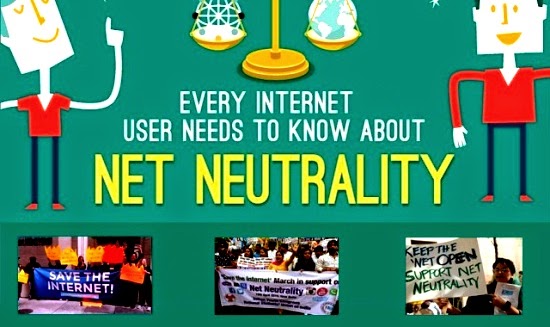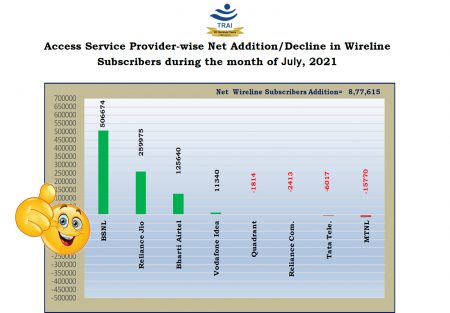Government panel appointed by Department of Telecommunications (DoT) has finally released it’s recommendations on Net Neutrality on 16th June 2015. Throughout the report, the panel has emphasised on the user’s right to Net Neutrality. The Committee unhesitatingly recommends that ‘the core principles of Net Neutrality must be adhered to.’
DoT has favoured policy regulation that would put curbs or tax the popular messaging and calling services like WhatsApp and Viber. The report says – the primary goals of public policy in the context of Net Neutrality should be directed towards achievement of developmental aims of the country by facilitating ‘Affordable Broadband’, ‘Quality Broadband’ and ‘Universal Broadband’ for its citizens.
Other Major Recommendations of DoT Committee Report on Net Neutrality in India are given below:
- User rights on the Internet need to be ensured so that TSPs/ISPs do not restrict the ability of the user to send, receive, display, use, post any legal content, application or service on the Internet, or restrict any kind of lawful Internet activity or use.
- OTT application services have been traditionally available in the market for some time and such services enhance consumer welfare and increase productivity. Therefore, such services should be actively encouraged and any impediments in expansion and growth of OTT application services should be removed.
- In case of VoIP OTT communication services, there exists a regulatory arbitrage wherein such services also bypass the existing licensing and regulatory regime creating a non-level playing field between TSPs and OTT providers both competing for the same service provision. Public policy response requires that regulatory arbitrage does not dictate winners and losers in a competitive market for service provision.
- The existence of a pricing arbitrage in VoIP OTT communication services requires a graduated and calibrated public policy response. In case of OTT VoIP international calling services, a liberal approach may be adopted. However, in case of domestic calls (local and national), communication services by TSPs and OTT communication services may be treated similarly from a regulatory angle for the present. The nature of regulatory similarity, the calibration of regulatory response and its phasing can be appropriately determined after public consultations and TRAI’s recommendations to this effect.
- Tariff plans offered by TSPs/ISPs must conform to the principles of Net Neutrality set forth in guidelines issued by the Government as Licensor. TRAI may examine the tariff filings made by TSPs/ISPs to determine whether the tariff plan conforms to the principles of Net Neutrality.
- Content and application providers cannot be permitted to act as gatekeepers and use network operations to extract value in violation of core principles of Net Neutrality, even if it is for an ostensible public purpose.






